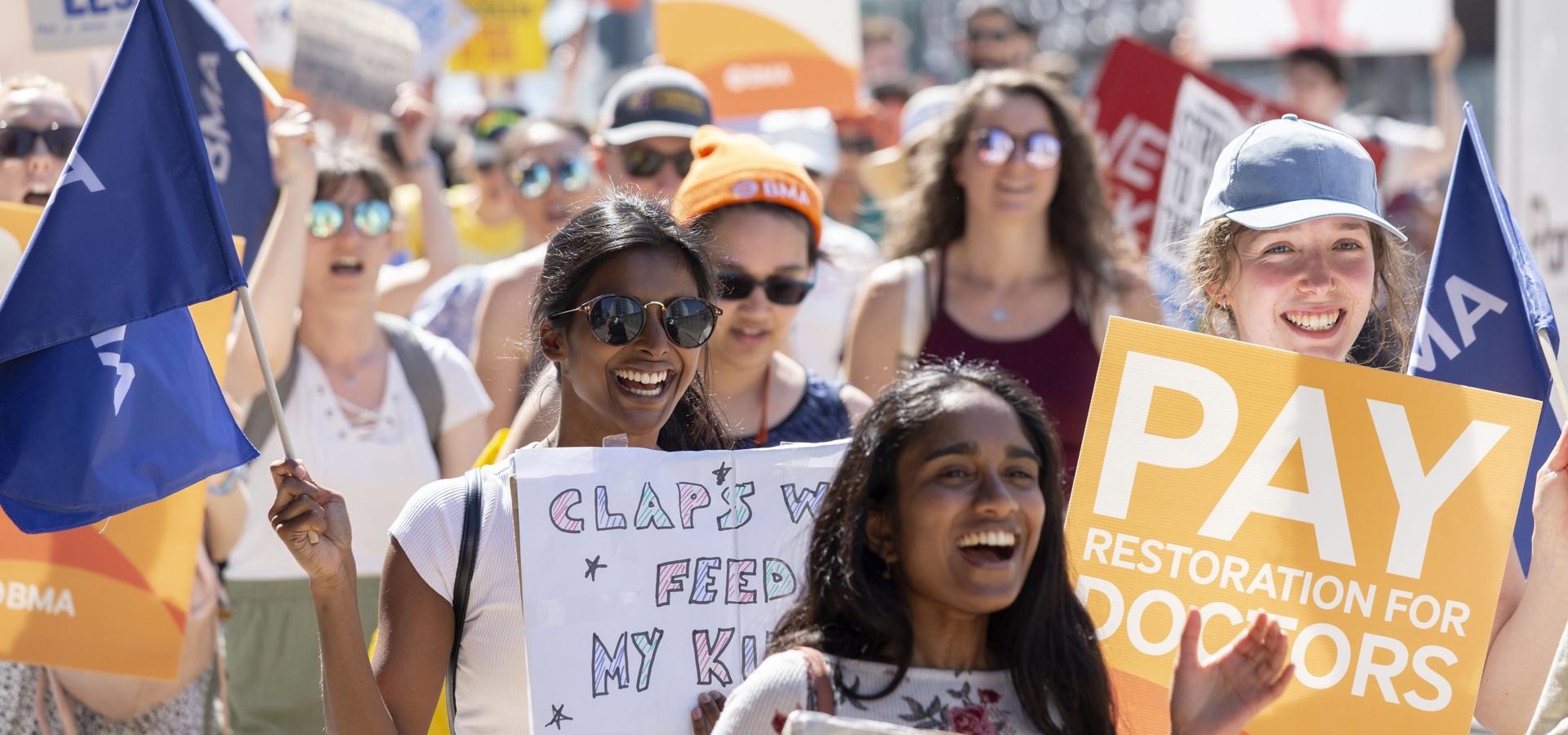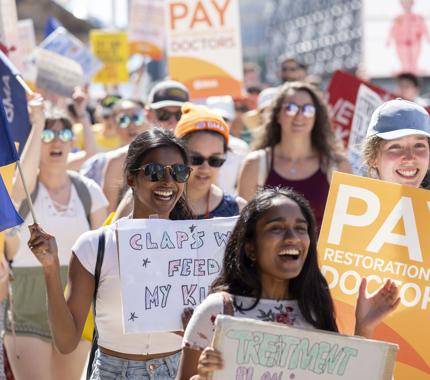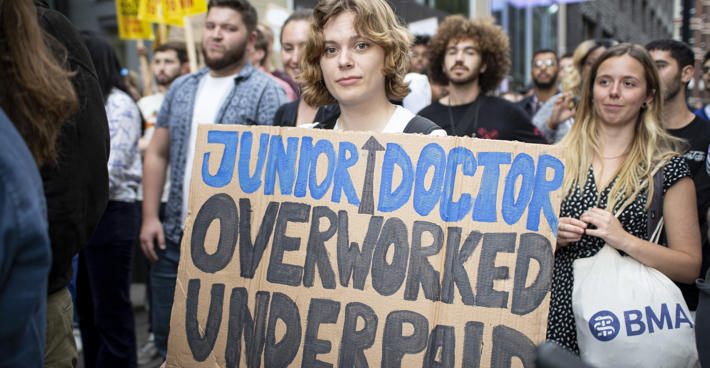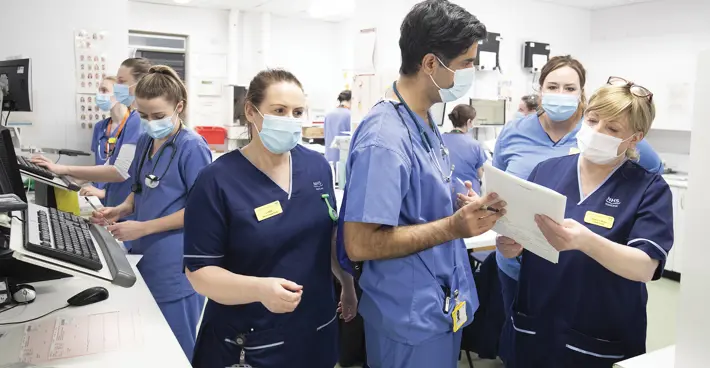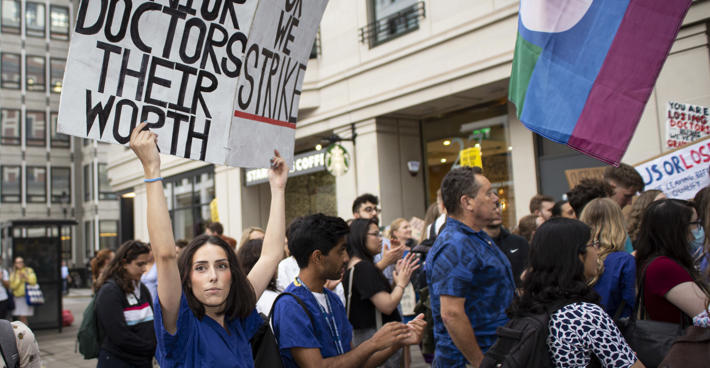Resident doctors vote YES in re-ballot
Following their most recent round of strike action in December 2025 and a rejection of the Government’s latest offer, resident doctors have returned a decisive ‘yes’ result in the latest re-ballot.
This result unites all resident doctors, including FY1s, under one strong mandate as we continue the fight for jobs and pay.
- Number of individuals who were entitled to vote in the ballot: 54,432
- Number of votes cast in the ballot: 28,598
- Votes cast in the ballot as a percentage of individuals who were entitled to vote: 52.54%
- Number of spoilt or otherwise invalid voting papers returned: 17
Result of voting:
- Yes: 26,696 (93.40%)
- No: 1,885 (6.60%)
Why this result matters
The Government has proposed a substantive real terms pay cut in 2026: this is on top of resident pay already being down by more than a fifth compared to 2008.
With their ability to strike protected for another six months, resident doctors have secured crucial leverage.
We will not back down until the Government wakes up to the scale of the crisis over pay and lack of specialty training places.


A brief history of our campaign
After 11 rounds of historic strike action, we reached a deal with Government in September 2024 that started a journey towards pay restoration.
But the deal with Government was just the first step.

Campaign resources
Download campaign materials.

